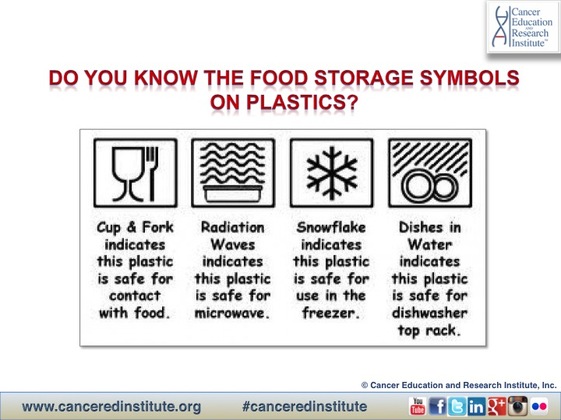on plastics? Here is what you should know:
Rolf Halden, PhD, adjunct associate professor of environmental health sciences at the Johns Hopkins Bloomberg School of Public Health, suggests: "Minimize contact of food with problematic plastics as a precautionary measure to protect your health."
Two potentially dangerous, and best-studied chemicals are 'bisphenol A (BPA)' and 'phthalates'.
Bisphenol A (BPA): BPAs are often used in containers that store food and beverages, such as water bottles. BPA mimics estrogen and has been shown to 'disrupt hormone and reproductive system function' in animals. The National Toxicology Program has found a moderate level of concern about its effects on the 'brain, behavior and prostate gland in fetuses, infants and children'.
What can you do to avoid BPA?
- Use BPA-free products.
- Cut back on cans.
- Avoid heat (microwaving plastics)
- Use alternatives (best: glass)
Phthalates: Phthalates are a group of chemicals used to make plastics more flexible and harder to break. The Centers for Disease Control and Prevention (CDC) researchers found measurable levels (in urine - this can estimate the amount of phthalates that have entered people's bodies) of many phthalate metabolites in the general population. This finding indicates that phthalate exposure is widespread in the U.S. population. Phthalates have been shown to 'disrupt the endocrine system and have led to malformations in the male reproductive system' in animals. Research studies in humans have found a link between high phthalate exposure and a variety of health concerns, including 'low sperm quality, high waist circumference and insulin resistance'.
If you'd like to donate to our non-profit for us to continue with more cancer education worldwide, please visit our donation page.











